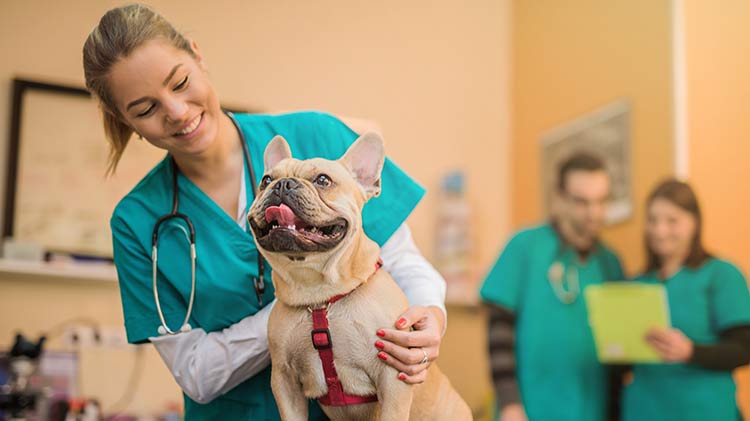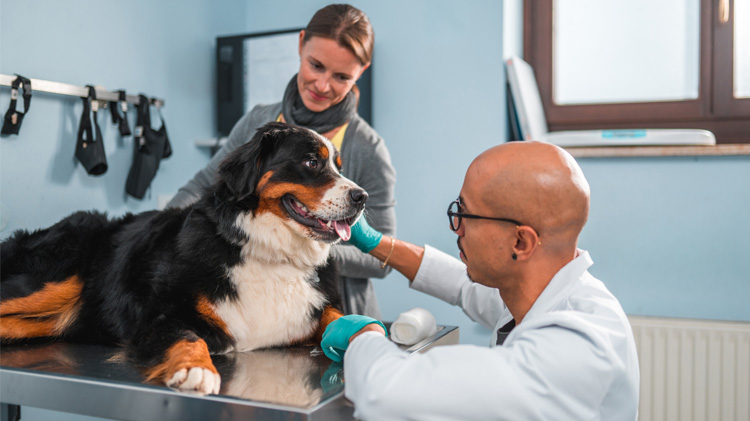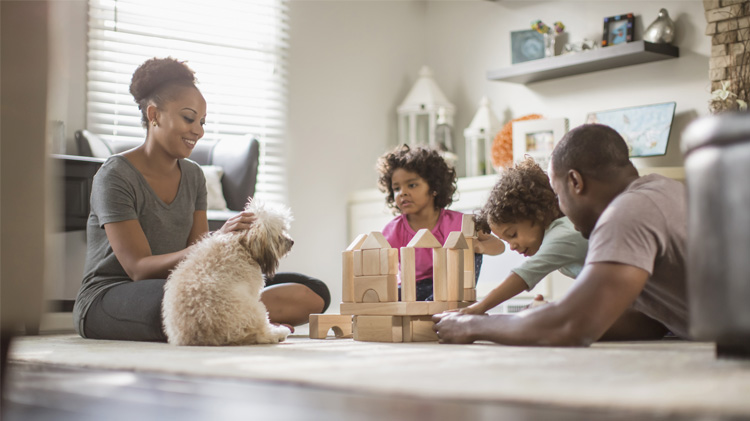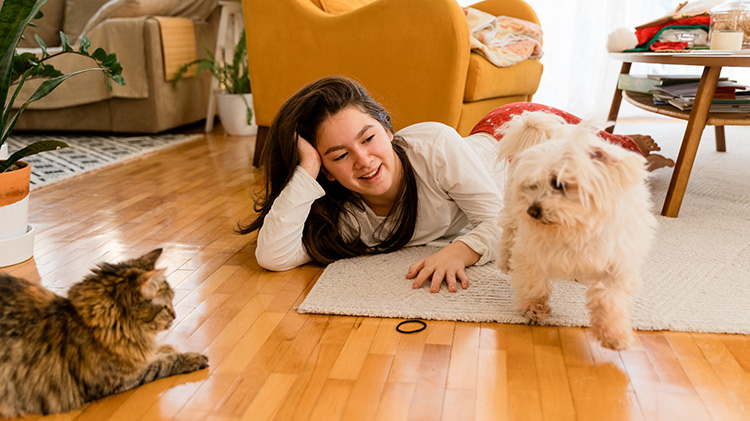How to be a responsible pet owner
Consider our tips for taking care of a pet to help support their health and happiness.
Being a responsible pet owner goes beyond providing food and shelter — it’s about helping ensure your furry companion lives a happy, healthy and fulfilling life. Whether you're new to taking care of a pet or looking to help refine your skills, responsible pet ownership involves meeting their physical, emotional and medical needs.
Get a pet insurance quote
Take care of bow-wows and meows.
Consider our practical tips and insights on how to help be a good pet owner while building a strong, loving bond with your four-legged friend.
Feed your pet nutritious and balanced meals
Some pet owners may be guilty of spoiling their pets with food, but providing proper nutrition is one of the most important pet ownership responsibilities. While a few extra treats or table scraps may seem like an expression of love, overindulging can lead to pet obesity — a widespread, serious issue linked to health problems like diabetes, joint pain and heart disease. According to a 2022 U.S. Pet Obesity Prevalence Survey, 61% of cats and 59% of dogs in the United States are considered overweight or obese.
By focusing on portion control, choosing high-quality food, monitoring your pet’s weight, and sticking to a consistent feeding schedule, you can help keep your pet healthy and energized while still showing them plenty of love in other ways.
Take the time to train your pet
Training can help establish good behavior, strengthen the bond between you and your pet and can even help ensure their safety. Whether it’s basic obedience commands like “sit” and “stay,” or a reliable recall for dangerous situations, it can be helpful for every responsible pet owner to properly train their pet.
Provide proper enrichment and socialization
Enrichment activities such as puzzle toys, interactive games and training exercises can be key to help stimulate your pet’s mind, reduce boredom and help prevent destructive behaviors. They may be especially helpful if you plan to be away from home, as they can help keep your pet busy and occupied while you’re gone.
Socialization is equally important, especially during the early stages of a pet’s life. Introducing your pet to new people, animals and environments in a positive and controlled manner can help build their confidence and teach them how to interact appropriately.
For dogs, regular playdates or visits to dog-friendly spaces can help improve their social skills, while cats may benefit from gentle exposure to new experiences at their own pace.
Keep your pet active
While energy levels can differ greatly between breeds, most pets can benefit from staying active. Regular exercise can help prevent pet obesity and boost both their physical and mental well-being. Not to mention, a tired pet is typically a happy and well-behaved pet!
For dogs, daily walks, play sessions and interactive games like fetch or tug-of-war can be great ways to help burn off excess energy. Cats can also benefit from physical activity, such as playing with laser pointers, feather wands or climbing structures.
Consider your pet's needs
Every pet has their own personality and preferences, so it’s important as a responsible pet owner to respect and accommodate their unique needs. Some pets may enjoy lots of quiet time alone, while others might thrive on affection and social interactions. By understanding your pet’s individual temperament, you can help provide the care and environment that best supports their well-being.
Additionally, see that your pet has what they need to live comfortably. This includes access to food and water, a quiet place to rest, and so on. For cats, change their litter frequently. If your cat goes potty outside the box, it may be a sign they don’t like their litter or are experiencing an underlying health issue.
Groom your pet regularly
Regular grooming not only helps keep your pet clean, but also allows you to monitor their skin for signs of irritation, fleas or infections. Brushing can help maintain your pet's coat by removing tangles and loose hair, preventing matting and reducing shedding around the house.
Grooming also includes trimming nails, cleaning ears and brushing teeth to help prevent dental issues.
Pet-proof your home
Pet-proofing can help protect your pet from harm, so take the time to learn about potential pet hazards in your home. Start by identifying common dangers like toxic plants, cleaning supplies and electrical cords, which can be harmful if ingested or chewed. Keep sharp objects, small items and choking hazards out of reach, particularly in areas where your pet spends most of their time.
It’s also important to secure all garbage cans, as food scraps can be tempting but harmful to curious pets. Consider using pet-friendly gates or barriers to create safe spaces for your pet to explore while restricting their access to risky areas.
Schedule regular vet visits
Routine check-ups allow your vet to monitor your pet’s health and catch any potential health issues early, generally making treatment more effective and less expensive. These visits also help your pet stay up to date on vaccinations, flea and tick prevention, and dental care — all of which are key to helping keep your pet healthy.
By establishing a good relationship with your vet, you can gain valuable guidance on nutrition, exercise and general pet care to help make informed decisions about your pet’s health and well-being. If you suspect something might be wrong with your pet, don’t hesitate to call your vet.
Prepare for the unexpected
Accidents and natural disasters can happen quickly and unexpectedly, so it’s important to have a plan in place for your pet’s safety. Start by creating a pet emergency kit that includes essentials like food, water, medications and first aid supplies. Also, consider having your pet microchipped or see that they have an ID tag with up-to-date contact information in case they get lost.
Additionally, pet owners might consider purchasing pet insurance to help with the cost of unexpected injuries and illnesses. Contact your State Farm® agent today to discover how a pet insurance policy can help be there for your pet.





